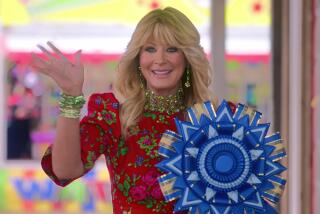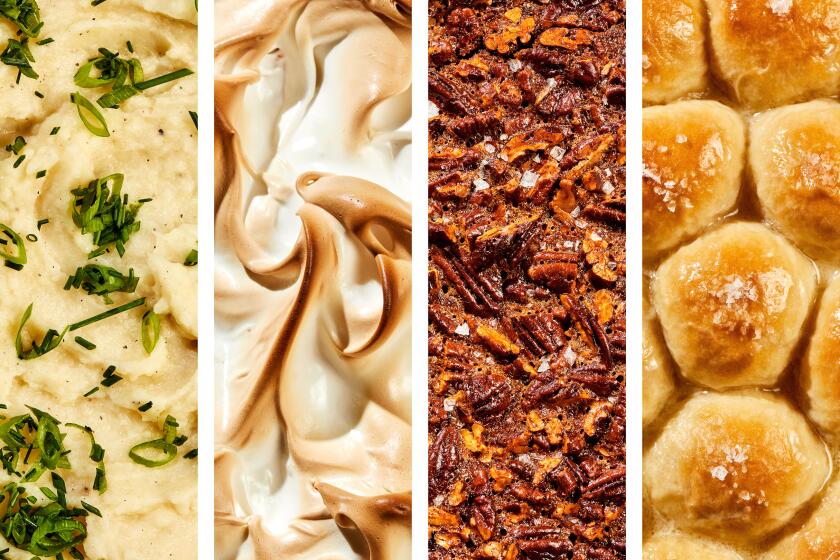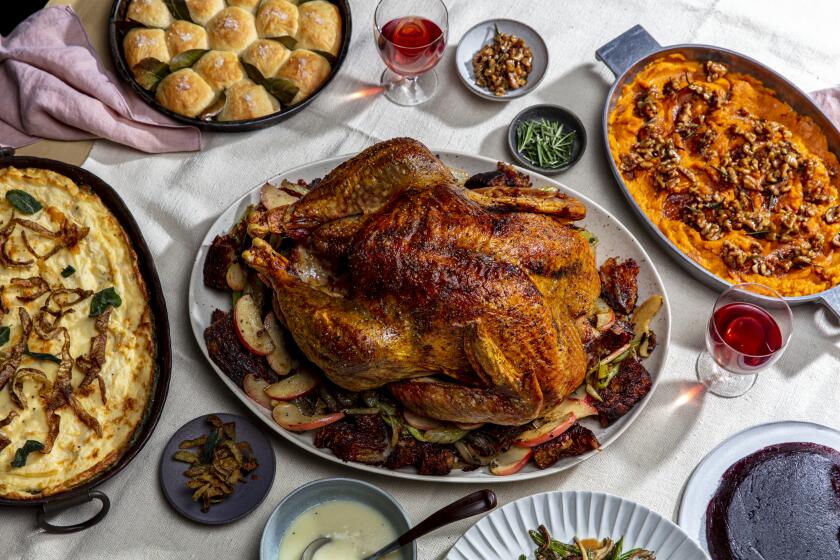Why we should all be watching ‘The Great British Baking Show’
Name: “The Great British Baking Show.” The show is an import from the United Kingdom, where it airs on BBC One as “The Great British Bake Off” and has been a ratings phenomenon.
How many seasons: In the U.K., the show is in its sixth season. An American version was developed by CBS in 2013; hosted by Jeff Foxworthy, it was canceled after only a season. (What a surprise.) PBS acquired the rights soon after and aired the show, in all its British glory, last year. In a bit of confusing programming — and a warning to spoiler-phobes — we’re not watching the sixth season along with U.K. audiences. Rather, PBS is airing the fourth season of the show and calling it Season 2. (Here’s the trailer.)
Where the show is shot: In a big tent on the big lawn of a very big manor built in 1797 called Harptree Court in Somerset. Nearby: the Cheddar Caves and Gorge, the Jane Austen Centre, and Glastonbury, home to the legends of the Holy Grail and King Arthur.
Concept: Thirteen amateur bakers compete for the title of best amateur baker in a series of increasingly difficult baking challenges. Each episode is themed (cakes, bread, patisserie, etc.), with three tasks in each. These are the Signature Bake, where contestants bake their version of a standard; the Technical Bake, where contestants are given the bare bones of a recipe and must use their instincts and baking knowledge to fill in the blanks as they go; and the Showstopper, where they construct a grand masterpiece. The show is occasionally interspersed with interesting history bits related to the tasks at hand.
The bakers are judged by Mary Berry, who has published 80 cookbooks in her 60-year career, and Paul Hollywood, a professional baker. Moving things along are hosts Sue Perkins and Mel Giedroyc, both comedians by trade. They provide hilarious color commentary; offer emotional support; toss out puns that are sometimes fantastic, sometimes terrible; and make raunchy jokes about tarts with soggy bottoms. Imagine if Amy Poehler and Tina Fey, or Wanda Sykes, hosted a cooking contest.
At the end of each episode, one contestant is named the Star Baker and one is eliminated from the competition, and so on until there is just one winner, who is awarded the grand prize: an engraved cake plate. Past contestants have become celebrities in their own right — they get cookbook deals or start their own shops — but in the universe of the competition itself, a job well done, and being proud of doing the thing you love, is its own reward. Imagine that.
Production values: High. The aesthetic, from the fonts to the equipment, is charmingly retro-vintage; the setting is beautifully pastoral; there are pretty shots of cakes. There also are no distracting ads, as the BBC has strict editorial rules against product placement (in fact, there was a row a few years ago when the name of the fridge manufacturer was apparently displayed too prominently on the show).
Why you’re watching: Because you love food television. Because you hate food television. Because you love accents. Because you love English vernacular. Because you love puns, especially British ones. Because you want to see how a fascinating cross-section of home bakers in the U.K. makes all sorts of familiar and unfamiliar breads and pastries.
While many television cooking competitions these days rely on chaos for drama — or, as Emily Nussbaum put it, in these shows, “food is a perpetual emergency” — “The Great British Baking Show” is considerably, remarkably calmer. With the exception of the Technical challenge, the bakers know in advance what they’ll be baking in each round, so the drama lies not in unexpected time constraints or surprise ingredients, but in the more pedestrian stress of whether dough has been laminated properly, say, or whether a sponge cake will rise.
Bakers don’t fight with each other — indeed, if someone runs into trouble, often a fellow competitor will lend a hand — they instead fight with their ovens, which they forgot to preheat, or with their doughs, which they didn’t proof long enough. All this makes, surprisingly, for thrilling television.
It helps, too, that the show allows the contestants — who range widely in age, ethnicity, profession and class — to be people rather than characters. And they are generally very likable people; you root for them; you want them all to succeed. As do the judges: Berry and Hollywood can be very critical, but they’re never mean. You get the sense that they’re just as bummed out as the contestant when a bake doesn’t work out as planned.
What you’re going to want to eat while you’re watching it: Tea and biscuits, of course.
What you’re going to want to make after you’ve finished watching it: Whatever the bakers made. And you won’t be alone in doing so. The show has so impacted U.K. audiences that the “Bake Off effect” has been credited with a spike in interest in baking, and an increase in sales of baking equipment.
Info: “The Great British Baking Show” airs at 7 p.m. Sundays on PBS. Episodes are also available online.
ALSO:
Your Los Angeles area ice cream and gelato map
7 tips we learned about chocolate from Alice Medrich
American Tea Room opens a swank shop downtown, with tea vats, booze and butter tea
More to Read
Eat your way across L.A.
Get our weekly Tasting Notes newsletter for reviews, news and more.
You may occasionally receive promotional content from the Los Angeles Times.










